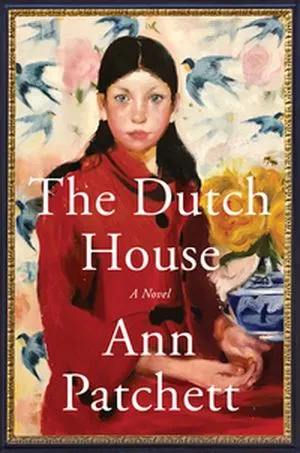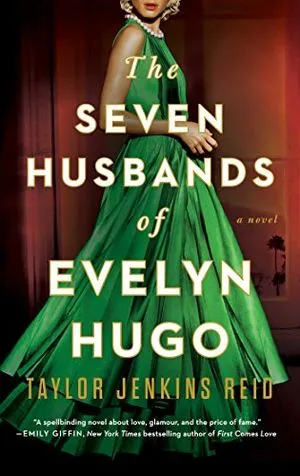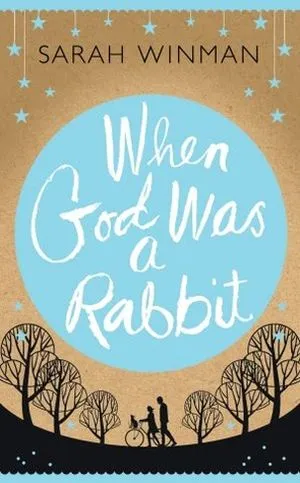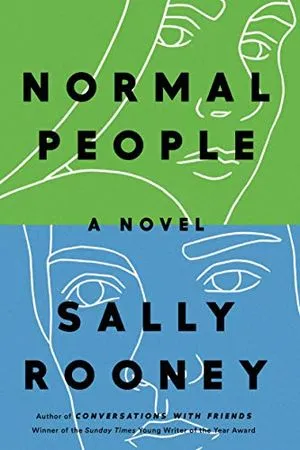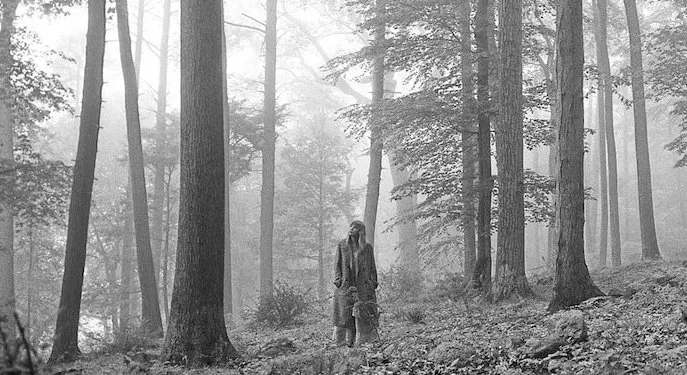
16 Books Like Taylor Swift’s FOLKLORE to Add to Your TBR
As the world obsesses over the surprise release of Taylor Swift’s new indie-sounding album, I’m keeping the feeling going by reading books like folklore. Swift has created a very defined aesthetic for this album, as she always does. Where her previous album, Lover, was all dreamy rainbow clouds, folklore is more quietly wandering the woods in a cozy cardigan with someone who may break your heart, plus a hint of witchcraft, like Wuthering Heights meets Midsommar. So, here’s your folklore-inspired reading list: 16 books like folklore to keep you in your melancholy forest feelings, all summer long.
“the 1”

Call Me By Your Name by André Aciman
The first song on the album finds Taylor looking back on an old love, wondering what life would have been like if the relationship had worked out. From the opening lines, “I’m doing good / I’m on some new shit,” to that demand in the chorus, “We were something, don’t you think so?”, this is an ode to moving on with your life in theory but still sometimes wondering what might have been (probably after a few glasses of wine. Relatable). What better book to capture this feeling than Call Me By Your Name, about an introspective narrator, Elio, looking back on the long-ago summer romance he had with older grad student Oliver? This coming-of-age novel pairs well with lyrics like “if you never bleed, you’re never gonna grow” and “I persist and resist the temptation to ask you / if one thing had been different / would everything be different today?”
“cardigan”
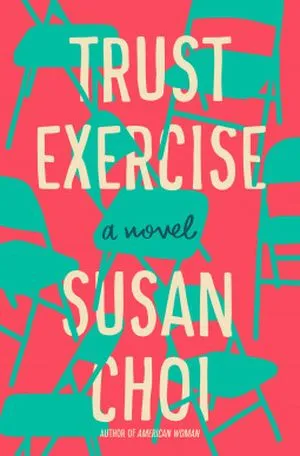
Trust Exercise by Susan Choi
“Cardigan” is an exploration of a teenage love triangle between a boy and two girls (the story picks up again in the songs “august” and “betty”). Of “cardigan,” Swift says: “The song is about a lost romance and why young love is often fixed so permanently within our memories. Why it leaves such an indelible mark.” Trust Exercise is not quite about a love triangle, but it is about an intense teenage relationship. The novel has three sections (just like there are three love triangle songs on this album!) and each is told by a different narrator (again, like these three songs), urging us to question which version of the truth is correct. In one version, David and Sarah fall in love in high school, and their connection is exploited by their drama teacher, who has them participate in a series of “trust exercises” as a way of developing as actors. But in the next version of the story, it turns out that may not be what really happened. Even so, they can’t seem to stay out of each other’s lives. “Cardigan” ends with the haunting repeated lines, “And I knew you’d come back to me / You’d come back to me,” suggesting that, just like in the novel, our teenage experiences stay with us far longer than we think.
“the last great american dynasty”
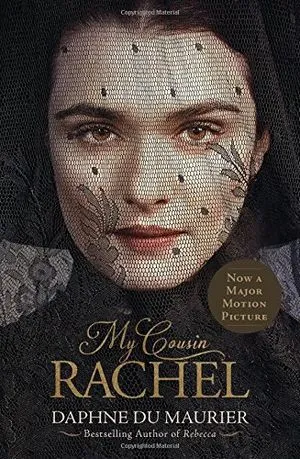
My Cousin Rachel by Daphne Du Maurier
This book captures the spirit, if not the exact story, of this song (with a Gothic twist). “The last great american dynasty” tells the story of a real-life woman, Rebekah Harkness, who married into a rich family only to end up with an estate after her husband died young. The song was inspired by the story behind Swift’s Rhode Island home. With lyrics like “there goes the maddest woman this town has ever seen / she had a marvelous time ruining everything,” the song makes it clear that Rebekah is a bit of a folk hero for Swift (and anyone who’s ever wanted to do whatever they want with someone else’s money, which, again, relatable). This is a pretty common story to find in fiction—think Rebecca, The Winters (a modern retelling of Rebecca), and maybe even aspects of Crazy Rich Asians. But my pick for this song is Daphne Du Maurier’s My Cousin Rachel, an absolute classic of the “outsider arrives and fucks things up” genre. Philip is close to his cousin, Ambrose, who raised him to inherit their family estate. When Ambrose marries impulsively in Italy, and then dies, Philip is devastated, even as he’s drawn to Rachel, Ambrose’s sophisticated, irresistibly compelling widow. (And yes, that is Rachel Weisz on that cover. She starred in a moody adaptation of the novel that has a very folklore-esque aesthetic—think manor homes and dark forests.)
“exile”
Tender Is the Night by F. Scott Fitzgerald
Swift has been influenced by F. Scott Fitzgerald before (with lyrics like “feeling so Gatsby for that whole year” and “roaring twenties, tossing pennies in the pool,” not to mention her The Great Gatsby-inspired video for “Style”), so it’s only fitting to include one of his novels on this list. Tender Is the Night is sad look at the dissolution of a marriage. Absolutely no one behaves well in this book. It’s about Dick Diver, a psychiatrist, and his wife, Nicole, who is one of his patients. (What?!) They’re both damaged people, and into that damage steps Rosemary, a young actress caught up in their fancy social circle in the south of France. And much like this novel, “exile” breaks down a relationship from two points of view, with Swift and Bon Iver’s Justin Vernon singing over each other. “You never gave a warning sign,” he sings, and she replies, “I gave so many signs.” Oof, honestly.
“my tears ricochet”
The Dutch House by Ann Patchett
We take a bit of a break from doomed romance here with another kind of betrayal: familial! In Ann Patchett’s The Dutch House, siblings Danny and Maeve grow up in an ostentatious house that becomes more than a house—it’s a symbol of their family unity and the rewards of their father’s obsessive hard work. When their father brings home a new stepmother, though, the house becomes a battleground. Danny and Maeve end up cast out of their own home, and only years later, as he looks back on his life, does Danny come to terms with the meaning of home and how that shaped his relationships. So many lines in this song apply, from “And I can go anywhere I want / anywhere I want, just not home” and “I didn’t have it in myself to go with grace” to “you had to kill me, but it killed you just the same.”
“mirrorball”
The Seven Husbands of Evelyn Hugo by Taylor Jenkins Reid
This is a song about fame. Lyrics like “I can change everything about me to fit in” and “I’ve never been a natural, all I do is try, try, try” make me wonder what it’s like to be so famous that you can never really be yourself again. That’s what Taylor Jenkins Reid’s The Seven Husbands of Evelyn Hugo is all about. Inspired by the life of Elizabeth Taylor (another starlet famous for her high-profile relationships), the novel is about a glam, reclusive star who grants a final tell-all interview to unknown journalist Monique. As Monique and Evelyn delve into her past, starting in 1950s Hollywood, Evelyn reveals that all along, she’s been hiding her true self from the world. Just like a mirrorball, she’ll “show you every version of yourself tonight”—that may or may not include the truth.
“seven”
When God Was a Rabbit by Sarah Winman
This song is about a childhood friend who’s unhappy at home. Lyrics like “And I’ve been meaning to tell you / I think your house is haunted / Your dad is always mad and that must be why” suggest that the protagonist of the song is watching from the outside, wondering how to help. When God Was a Rabbit is a lyrical novel about siblings Elly and Joe, who have a close connection. Their loving but distracted parents and Elly’s friend Jenny Penny, who has her own family problems, are constant presences, along with a cast of quirky characters (and a pet rabbit called God). But 20 years later, their family bond is threatened and Elly must look back on her childhood experiences with fresh eyes. For a novel where children run wild in a remote part of Cornwall, a song with lyrics including “Please picture me in the weeds / before I learned civility” is a great match.
“august”
Anna K by Jenny Lee
I had to include a doomed teen romance on here. Enter Anna K, Jenny Lee’s fun modern retelling of Anna Karenina. Anna K is in the upper echelons of New York and Greenwich society. She has a wealthy family and the perfect boyfriend. While Anna’s friends struggle with normal teen problems—unrequited love, wandering eyes, academics—she seems above it all. Until, that is, she meets Alexia “Count” Vronsky, a notorious playboy who threatens to topple her carefully constructed world. If you’ve read Anna Karenina, you probably know where this is going. Just like its Russian inspiration, Anna K is all about secret meetings, intense love affairs, and wishing for something you don’t have. And as Swift sings on “august,” “Back when we were still changing for the better / wanting was enough / for me, it was enough / to live for the hope of it all.” This is the second song in the album’s teenage love triangle trilogy.
“this is me trying”
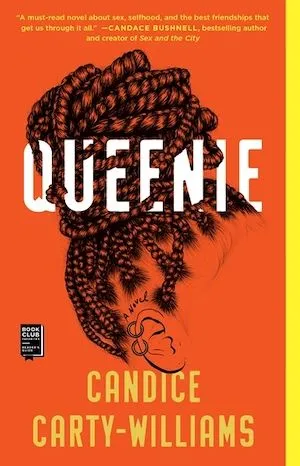
Queenie by Candice Carty-Williams
Queenie, the eponymous heroine of Carty-Williams’s debut novel, seems to spend a lot of her time not trying. After a messy breakup with her long-term love, she’s adrift at work and in life (“I’ve been having the hardest time adjusting / I had the shiniest wheels, now they’re rusting,” sings Swift). She wants to write more political pieces at her job at a newspaper, but she’s up against a boss who wants her to just do the boring job she’s been assigned (“they told me all of my cages were mental / so I got wasted like all my potential”). Her friends’ lives seem to be moving on without her (“fell behind all my classmates and I ended up here”). But as she careens from one messy dating situation to the next, it becomes clear that what Queenie needs is to figure out who she really is. Can she accept her family’s help and try again?
“illicit affairs”
Normal People by Sally Rooney
I think I could have paired Sally Rooney’s runaway bestseller Normal People with a number of songs on this album—Swift is a noted Rooney fan, and both write about young people in intense relationships. “Illicit affairs” is a song about, well, an illicit affair, which is how Connell and Marianne’s relationship begins in Normal People. Marianne is an outcast at school and Connell is a popular rugby star, but they have an intense sexual and romantic connection that lasts through Connell’s initial desire to keep their relationship a secret, plus various breakups and challenges when they go off to college. Neither of them can quite escape the pull of the other or have successful relationships with other people, which makes me think of the lyrics “you taught me a secret language I can’t speak with anyone else” and “you know damn well / for you I would ruin myself / a million little times.”
“invisible string”
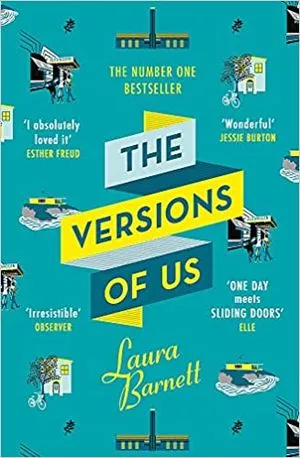
The Versions of Us by Laura Barnett
“Invisible string” is a sweetly wistful love song imagining that two people have some sort of invisible connection even before they actually meet. Swift writes about small coincidences (her future boyfriend eating at her favorite restaurant, for example) that seem to foreshadow their eventual romance. Lyrics like “isn’t it just so pretty to think / all along there was some invisible string / tying you to me?” could be marketing copy for The Versions of Us by Laura Barnett. This novel is about Eva and Jim, students who have a chance encounter that changes their lives—or does it? Covering the next 50 years of their lives, the novel offers us three possible versions of their future. In each, their connection remains strong in sometimes surprising ways.
“mad woman”
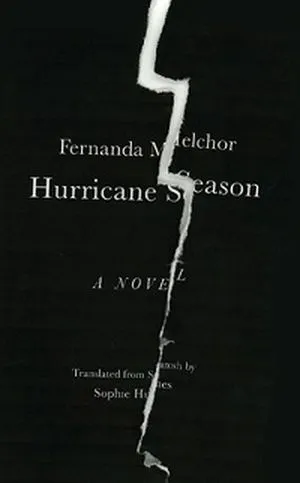
Hurricane Season by Fernanda Melchor
In this song, Swift picks up on themes she covered on 2017’s reputation and last year’s Lover: female freedom, women that society deems crazy, and what drives women to this kind of anger in the first place. Hurricane Season has a similarly intense female figure at its centre, called simply “the Witch” by her neighbors in her small town in Mexico. Someone killed her, but no one knows who or why—or at least, no one will admit it. As different characters tell their sides of the story, it becomes clear that the darkness was in the village all along. Everyone has something to blame on the Witch, but few are willing to examine their own flaws. After all, “there’s nothing like a mad woman / what a shame she went mad / no one likes a mad woman.”
“epiphany”
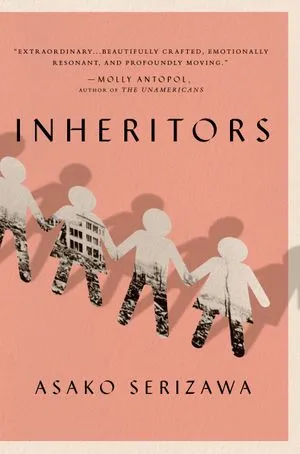
Inheritors by Asako Serizawa
Swift has noted that one of her inspirations for this heartbreaking song was her grandfather, who fought in the Pacific during World War II. Her imagining of his experience is interwoven with lyrics about our current reality during the coronavirus pandemic: “Something med school did not cover / Someone’s daughter, someone’s mother / Holds your hand through plastic now / Doc, I think she’s crashing out.” To match the quiet beauty of this song, I picked Inheritors, a brand-new book of short stories by Japanese writer Asako Serizawa. The interlocking stories span 150 years and follow the history of one family, beginning in the 19th century and ending a few years from now. Characters grapple with the weight of their decisions during times of war and imperialism, and those decisions have far-reaching consequences they could never predict. What do we inherit from our families, and how do their experiences shed light on our own? Both song and book explore these questions.
“betty”
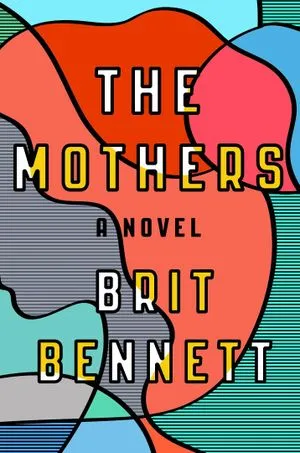
The Mothers by Brit Bennett
This final song in the teenage love triangle, “betty” sounds like an apology from James, the boy who caused all the drama. “The worst thing that I ever did,” he says, “is what I did to you.” Brit Bennett’s The Mothers captures this mood. Nadia is in her last year of high school, mourning her mother’s death by suicide, when she is drawn into a relationship with Luke, the pastor’s son and a football star. The secret that results from this relationship will have far-reaching consequences—not just for Nadia and Luke, but for Nadia’s religious best friend, Aubrey. A short-but-intense teen relationship, a secret that lasts long after that relationship is over? Yup, that’s a Swift song.
“peace”

The Idea of You by Robinne Lee
In “peace,” we finally move on from coming-of-age stories. It says so in the first line: “our coming-of-age has come and gone / suddenly this summer, it’s clear.” So has Solène Marchand, the protagonist of The Idea of You. She’s a 39-year-old art gallery owner who makes a surprising, unexpected connection with a boy band member half her age. Hayes Campbell wins her over and soon they’re in a passionate relationship. But they live in different worlds, and being with Hayes brings a level of scrutiny and media attention Solène finds hard to handle. Hayes wants to settle down together, but Solène isn’t so sure. If we imagine the song being sung from his point of view, it’s a perfect fit. “All these people think love’s for show / but I would die for you in secret / The devil’s in the details, but you got a friend in me / would it be enough if I could never give you peace?” It’s up to Solène to decide!
“hoax”
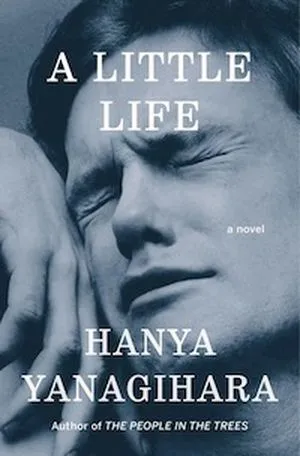
A Little Life by Hanya Yanagihara
The album-ending song “hoax” has thoughtful lyrics that seem to hint at pain within a long-term relationship: “Don’t want no other shade of blue but you / No other sadness in the world would do.” It’s about loving someone despite the damage they’ve caused (or perhaps despite the damage they’ve suffered). In a similar vein, A Little Life is a heart-wrenching novel about friendships that last decades. Friends Willem, JB, Malcolm, and Jude move to New York together and grow up—encountering wished-for success as well as pain and trauma. For Jude, the enigmatic center of the quartet, scars from his childhood are only made deeper and more painful by his adult experiences. His friends are drawn to him even as it becomes increasingly more difficult to help him. The song, too, captures that feeling of being so drawn to someone, with lyrics like “I am ash from your fire” and “my only one / my kingdom come undone.”
I’m assuming we’re all deep in our feelings right now. The melancholy stylings of folklore lend themselves well to a day spent curled up under a blanket or sitting under a tree, reading and remembering your past loves. I know it’s summer right now, but let’s be honest, it’s always cardigan weather for Taylor Swift fans. Once you’re done these books like folklore and need more Swift/book matches, check out this reading list for her album Lover and this post pairing her songs with YA romances.




